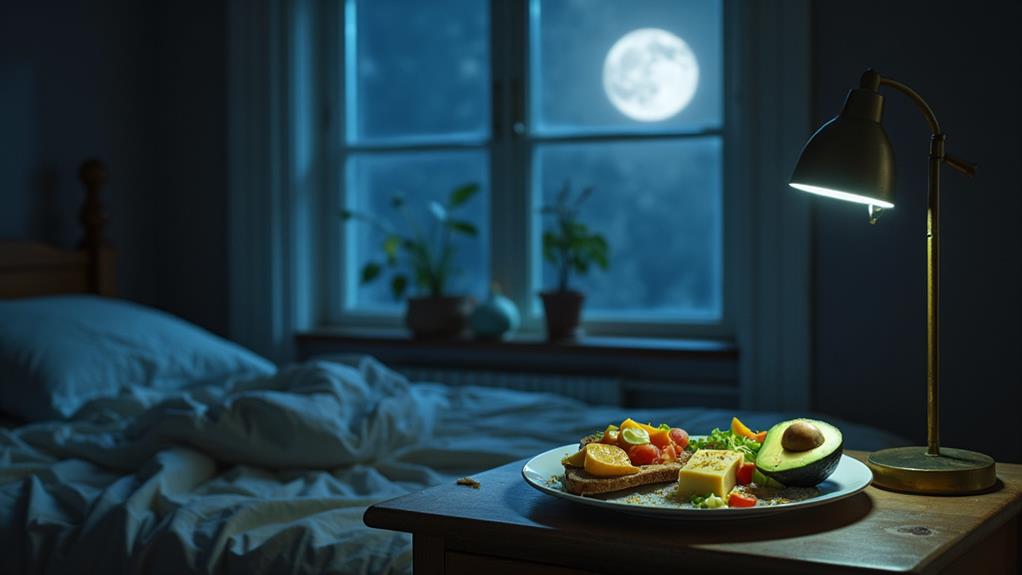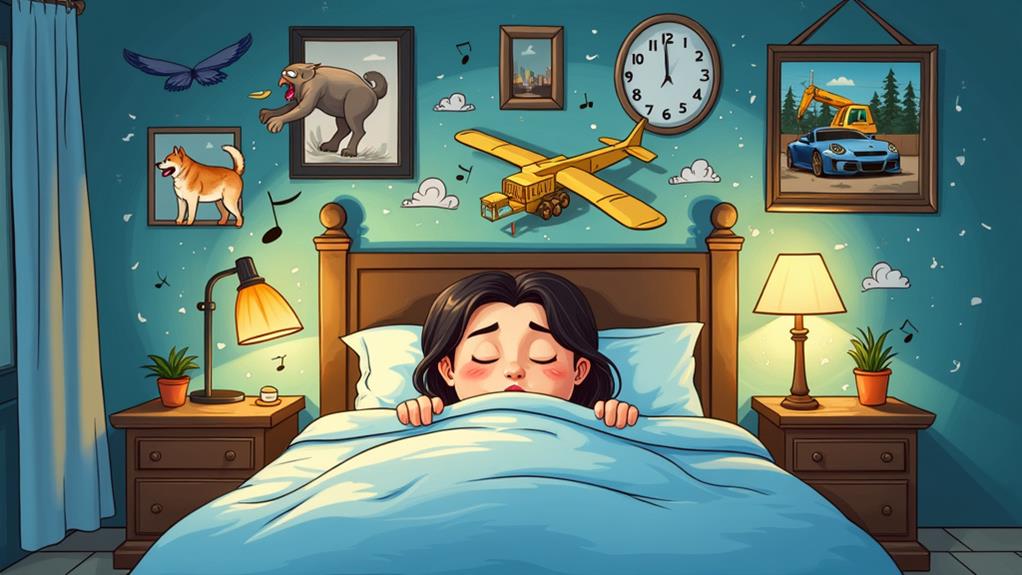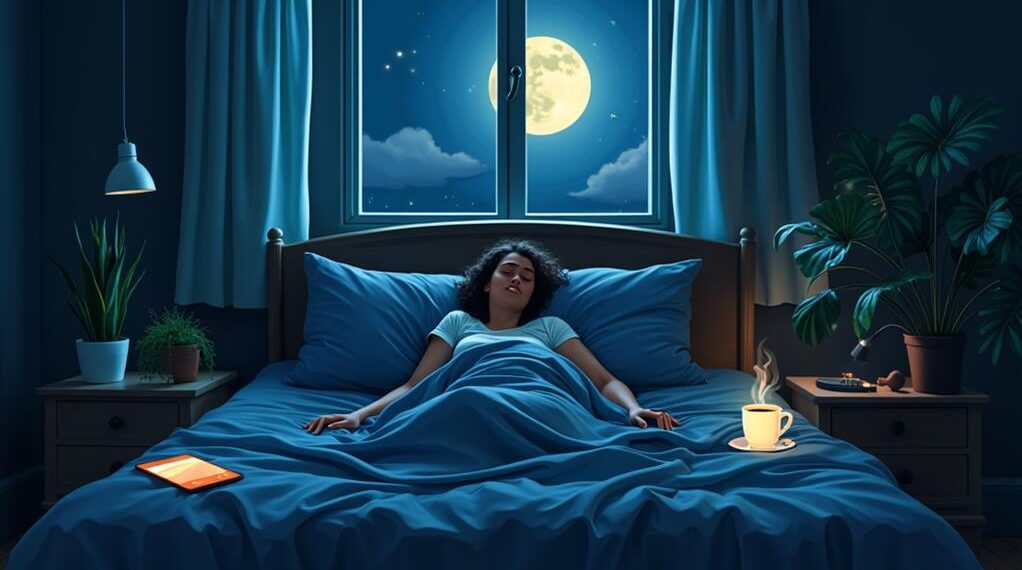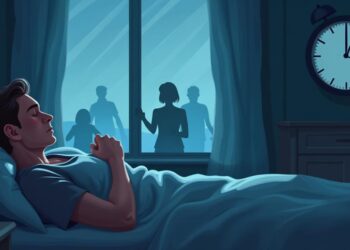You might think insomnia is just about stress or anxiety, but there are surprising factors at play that you may not have considered. For instance, unrecognized food sensitivities can wreak havoc on your sleep, while certain medications might be disrupting your rest without you realizing it. Even environmental noise, hormonal fluctuations, and a lack of natural light can contribute to your restless nights. Curious about how these elements might be impacting your sleep? It's time to uncover the unexpected triggers that could be keeping you awake.
Unrecognized Food Sensitivities

Unrecognized food sensitivities can silently disrupt your sleep, leaving you tossing and turning through the night. You mightn't even realize that the foods you consume are affecting your gut health, which plays an essential role in your overall well-being.
When your gut isn't functioning at its best, it can lead to inflammation and digestive discomfort, both of which can exacerbate insomnia.
You may find that certain foods trigger stress responses in your body, elevating cortisol levels and making it difficult to relax. This connection between gut health and stress management is often overlooked.
When you're constantly battling unrecognized sensitivities, your body remains in a state of alertness, making it harder to achieve restorative sleep.
To tackle this issue, consider keeping a food diary to identify patterns between what you eat and how you feel. Eliminating suspected trigger foods can lead to a significant improvement in your sleep quality.
By prioritizing your gut health and practicing effective stress management techniques, you can create a more balanced environment for restful sleep.
Overlooked Medications
Often, people don't realize that medications can contribute to insomnia, even when they're taken for entirely different health issues. Many individuals rely on sleeping pills to help them drift off, but these can sometimes lead to a cycle of dependency and disrupted sleep patterns.
While they might provide temporary relief, the body can become accustomed to them, making it harder to sleep naturally over time.
On the other hand, antidepressants, which are often prescribed to alleviate mood disorders, can also have significant side effects that interfere with sleep. You might find yourself feeling restless or experiencing vivid dreams, both of which can keep you awake at night.
It's essential to reflect on how these medications affect your sleep quality.
If you suspect that your insomnia might be linked to your medications, don't hesitate to consult your healthcare provider. They can help you evaluate your current regimen and possibly adjust dosages or switch medications to reduce these unwanted side effects.
Being proactive about your treatment can lead to better sleep and overall well-being. Remember, understanding the impact of your medications is an important step toward achieving restful nights.
Environmental Noise Disruptions

Environmental noise disruptions frequently play a significant role in your ability to get a good night's sleep. Everyday sounds, whether they're loud neighbors, traffic, or late-night parties, can invade your sanctuary and prevent restful slumber.
You mightn't realize it, but even subtle sounds can disrupt your sleep cycle, leading to insomnia.
Here are some common sources of environmental noise that could be impacting you:
- Traffic sounds from busy streets
- Loud appliances, like refrigerators or air conditioners
- Barking dogs or other animals
- Music or voices from nearby homes or apartments
- Construction noise from surrounding areas
To combat these disruptions, you can consider using soundproofing techniques to create a quieter environment.
Installing heavy curtains, using weather stripping on doors and windows, or adding rugs can help absorb sound. Additionally, incorporating white noise machines can mask disruptive noises, allowing you to drift off more easily.
Understanding the impact of environmental noise on your sleep can empower you to take action and create a more peaceful sleeping atmosphere, ultimately improving your sleep quality and overall well-being.
Hormonal Fluctuations
While environmental noise can disrupt your sleep, hormonal fluctuations are another significant factor that can lead to insomnia. Hormonal imbalances, particularly those related to cortisol, estrogen, and progesterone, can seriously affect your sleep cycles.
For instance, elevated cortisol levels, often linked to stress, can keep you awake at night, making it hard to fall asleep or stay asleep.
Women may experience significant sleep disruptions during menstruation, pregnancy, or menopause due to fluctuating estrogen and progesterone levels. These hormones not only influence your mood but also your body's ability to regulate sleep.
Low progesterone can lead to insomnia, while high estrogen levels can cause vivid dreams or night sweats, further disrupting your rest.
If you suspect hormonal changes are impacting your sleep, it's crucial to consult with a healthcare professional. They can help identify any underlying issues and suggest appropriate treatments.
Understanding how these hormonal fluctuations affect your sleep can empower you to take action towards enhancing your overall sleep quality and restoring balance in your life.
Lack of Natural Light Exposure

Exposure to natural light plays an essential role in regulating your sleep-wake cycle, and a lack of it can greatly contribute to insomnia.
When you don't get enough sunlight, your circadian rhythm can become disrupted, leading to difficulty falling and staying asleep. This imbalance can also impact your overall sleep hygiene, making it vital to prioritize natural light exposure.
To improve your sleep quality, consider the following strategies:
- Spend time outdoors: Aim for at least 30 minutes of natural light exposure each day.
- Open your curtains: Let sunlight in during the day to brighten your living space.
- Work near windows: Position your workspace to maximize daylight exposure.
- Limit artificial light in the evening: Reduce screen time and opt for warm lighting to signal your body that it's time to wind down.
- Take breaks outside: Step outside during work or study breaks to recharge.
Conclusion
In addressing insomnia, think of your sleep like a symphony; if one instrument's out of tune, the entire piece falters. Just like the unexpected notes of food sensitivities or hormonal shifts can disrupt your night, you might find that overlooked medications and environmental noise create discord. By tuning into these surprising causes, you can harmonize your sleep patterns and reclaim restful nights. Awareness is the first step toward orchestrating the peaceful sleep you deserve.














